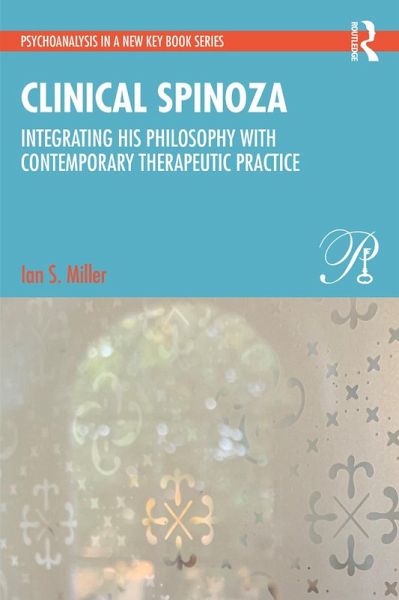
Clinical Spinoza (eBook, PDF)
Integrating His Philosophy with Contemporary Therapeutic Practice
Versandkostenfrei!
Sofort per Download lieferbar
36,95 €
inkl. MwSt.
Weitere Ausgaben:

PAYBACK Punkte
18 °P sammeln!
Discovering Spinoza's early modern psychology some 35 years into his own clinical practice, Ian Miller now gives shape to this connection through a close reading of Spinoza's key philosophical ideas.With a rigorous and expansive analysis of Spinoza's Ethics in particular, Miller explores how Spinozan thought simultaneously empowered the original conceptual direction of psychoanalytic thinking, and anticipated the field's contemporary theoretical dimensions. Miller offers a detailed overview of the philosopher's psychoanalytic reception from the early work of German-langauge psychoanalytic thin...
Discovering Spinoza's early modern psychology some 35 years into his own clinical practice, Ian Miller now gives shape to this connection through a close reading of Spinoza's key philosophical ideas.
With a rigorous and expansive analysis of Spinoza's Ethics in particular, Miller explores how Spinozan thought simultaneously empowered the original conceptual direction of psychoanalytic thinking, and anticipated the field's contemporary theoretical dimensions. Miller offers a detailed overview of the philosopher's psychoanalytic reception from the early work of German-langauge psychoanalytic thinkers, such as Freud and Lou Andreas-Salomé, forward into its Anglophone reception, influencing both mid-century humanistic American psychoanalysis as well as anticipating thinkers such as Bion and Winnicott.
Covering key concepts in psychoanalytic theory and clinical practice, this book demonstrates how knowledge of Spinoza's philosophical work can help to both illulminate and improve modern psychoanalytic therapies.
With a rigorous and expansive analysis of Spinoza's Ethics in particular, Miller explores how Spinozan thought simultaneously empowered the original conceptual direction of psychoanalytic thinking, and anticipated the field's contemporary theoretical dimensions. Miller offers a detailed overview of the philosopher's psychoanalytic reception from the early work of German-langauge psychoanalytic thinkers, such as Freud and Lou Andreas-Salomé, forward into its Anglophone reception, influencing both mid-century humanistic American psychoanalysis as well as anticipating thinkers such as Bion and Winnicott.
Covering key concepts in psychoanalytic theory and clinical practice, this book demonstrates how knowledge of Spinoza's philosophical work can help to both illulminate and improve modern psychoanalytic therapies.
Dieser Download kann aus rechtlichen Gründen nur mit Rechnungsadresse in A, B, BG, CY, CZ, D, DK, EW, E, FIN, F, GR, HR, H, IRL, I, LT, L, LR, M, NL, PL, P, R, S, SLO, SK ausgeliefert werden.













